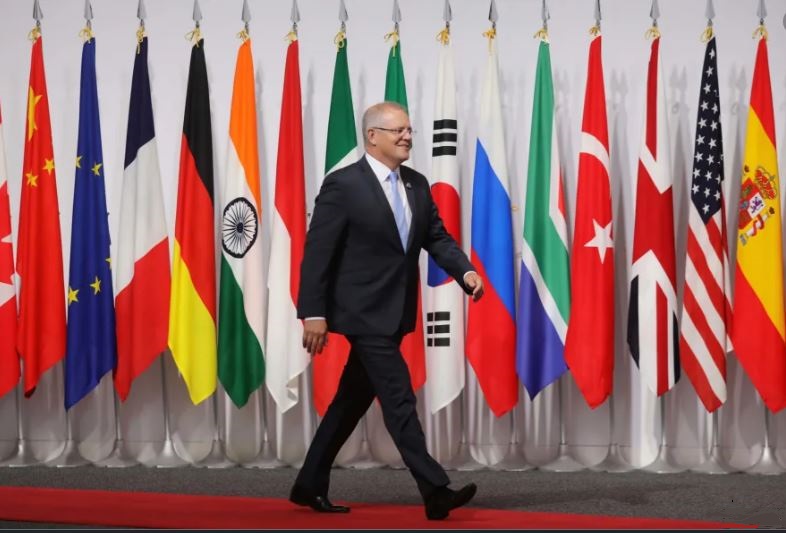Diplomacy could be helping to create a more favourable world for Australia’s interests, but with continuing budget cuts, it doesn’t seem like a priority
It seems like every week the government is looking to cut spending somewhere in the budget as it chases after a surplus. How do individual government departments fare? Do some get cut more than others?
Our research, published in Australian Foreign Affairs, shows that the Department of Foreign Affairs and Trade (DFAT) is now at a new low point at just 1.3 per cent of the total federal budget.
This is a long-term trend across Australian governments over more than a decade. In the last five years, DFAT has been a particular target for cost-cutting with reports that at least 25 per cent of the cuts across government have fallen on this one department.
This might not be a problem for Australia if the world were getting easier to deal with. But it is not.
In a speech this month, Prime Minister Scott Morrison eloquently described “the new and challenging world that Australia faces” with a new economic and political order still taking shape.
He listed challenges including “a new era of strategic competition”, technological disruption, dependence on global trade, automation, artificial intelligence and continuing security threats from terrorism, extremist Islam, anti-Semitism, white supremacism and “evil on a local and global level”.
This suggests that it’s not the time to be reducing the ability to grapple with these challenges.
Again, the cuts to DFAT might make sense if there were cuts across the board. But these cuts have not been mirrored in other areas such as defence and intelligence.
Read the article by Melissa Conley Tyler and Mitchell Vandewerdt-Holman, Asialink, University of Melbourne in PURSUIT.

